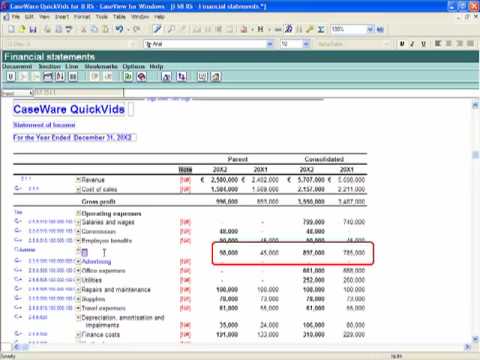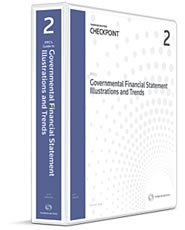What Is an Audit?

Performing regular internal audits also shows the external auditors that your company has a means to improve your internal controls and thereby manage your organization effectively. External auditors follow a set of standards different from that of the company or organization hiring them to do the work.
Such changes in activities may trigger accounting and reporting considerations that should be communicated to the auditor during the planning process. Internal auditors are employed by the company or organization for whom they are performing an audit, and the resulting audit report is given directly to management and the board of directors. Consultant auditors, while not employed internally, use the standards of the company they are auditing as opposed to a separate set of standards. These types of auditors are used when an organization doesn’t have the in-house resources to audit certain parts of their own operations. Standards for external audits performed in the United States, called the generally accepted auditing standards (GAAS), are set out by Auditing Standards Board (ASB) of the American Institute of Certified Public Accountants (AICPA).
In 1934, Congress commissioned the SEC as the regulatory agency for auditing requirements and standards. There are many different types of checklists available for financial audits.
A commercial decision such as the setting of audit fees is handled by companies and their auditors. Directors are responsible for setting the overall fee as well as the audit committee. The fees are set at a level that could not lead to audit quality being compromised. The scarcity of staffs and the lower audit fee lead to very low billing realization rates.
The purpose of an internal audit is to ensure compliance with laws and regulations and to help maintain accurate and timely financial reporting and data collection. It also provides a benefit to management by identifying flaws in internal control or financial reporting prior to its review by external auditors.
Involves the assessment of the effectiveness of an entity’s suite of controls, concentrating on such areas as proper authorization, the safeguarding of assets, and the segregation of duties. This can involve an array of tests conducted on a sampling of transactions to determine the degree of control effectiveness. A high level of effectiveness allows the auditors to scale back some of their later audit procedures. There are a variety of risk assessment questionnaires available that can assist with internal controls testing. The SOX Act requires integrated audits of larger, publicly held companies.
The United States Government Accountability Office (US GAO) also puts out checklists for federal auditing. Additionally, there are self-assessment checklists you can review prior to your audit, whether your business is public, private, or nonprofit. A first-party audit is performed within an organization to measure its strengths and weaknesses against its own procedures or methods and/or against external standards adopted by (voluntary) or imposed on (mandatory) the organization. A first-party audit is an internal audit conducted by auditors who are employed by the organization being audited but who have no vested interest in the audit results of the area being audited. Were there significant changes in internal control systems or organizational structure?
They may gather information from the company’s reporting systems, balance sheets, tax returns, control systems, income documents, invoices, billing procedures, and account balances. Then they conduct a comprehensive review of all this information in a fair, accurate manner to ensure there are no major errors or fraud. They must deal with different levels of management throughout different departments in pursuing data and information. They do this in order to gain an understanding of how the business operates, as well as of the company’s purpose and its reporting systems. An auditor is an independent certified public accountant who examines the financial statements that a company’s management has prepared.
Understanding Audits
This emphasis on the internal control environment is now a mandatory part of the audit of SEC-listed companies, under the auditing standards of the Public Company Accounting Oversight Board (PCAOB) set up by the Sarbanes-Oxley Act. Costs of audit services can vary greatly dependent upon the nature of the entity, its transactions, industry, the condition of the financial records and financial statements, and the fee rates of the CPA firm.
Career Advice: Accounting vs. Auditing
However, if there are issues, it is your auditor’s responsibility to find and report them. Your auditor is bound by a code, and as such, that code may be enforced if they do not perform accordingly. With documentation dating from 1314, England boasts the earliest recorded financial audit.
Whether you are an auditor, or you own a company and want to prepare for an audit, you can use a checklist to get ready. With membership to the American Institute of Certified Public Accountants (AICPA), you’ll receive auditing checklists for everything from basic auditing to assessment of the risk of fraud.
Auditing promotes transparency and accuracy in the financial disclosures made by an organization, therefore would likely reduce such corporations concealmeant of unscrupulous dealings. While external audits assess financial risks and statements, internal audits go further and consider your business’ growth, impact to the environment, employee culture, and reputation. Internal auditors report to your board and senior management within your governance structure and, instead of just providing reasonable assurance to your stakeholders and outsiders, they offer ways to improve your company overall.
We have already discussed information systems auditing; other unique audits include operational and compliance audits. An internal audit should address these operational processes as well as the accounting procedures that affect them and are affected by them. Your auditors should be able to identify implementation issues and recommend remedial actions for improvement. Compliance audits deal specifically with the level of compliance with internal policies or external regulatory requirements.
- The financial audit is one of many assurance functions provided by accounting firms.
- In addition, some companies also use internal auditors to review the financial reporting processes and internal accounting controls to assure that the company’s systems are appropriately designed and operating effectively.
Financial statement audit
Many organizations separately employ or hire internal auditors, who do not attest to financial reports but focus mainly on the internal controls of the organization. External auditors may choose to place limited reliance on the work of internal auditors.
The Act does not require smaller public or private companies to have an integrated audit — in general, these institutions only need audits of their financial statements. A small public company or a private company may want to have an integrated audit performed when they are preparing for sale. The auditor’s verification of a strong system of controls can improve the sales price of the company.
In addition, some companies also use internal auditors to review the financial reporting processes and internal accounting controls to assure that the company’s systems are appropriately designed and operating effectively. Financial audits are typically performed by firms of practicing accountants who are experts in financial reporting. The financial audit is one of many assurance functions provided by accounting firms.
Internal Revenue Service (IRS) Audits
The biggest difference between an internal and external audit is the concept of independence of the external auditor. A company’s management has the responsibility for preparing the company’s financial statements and related disclosures. The company’s outside, independent auditor then subjects the financial statements and disclosures to an audit. If the auditor cannot reach that conclusion, then the auditor must either require the company to change the financial statements or decline to issue a standard audit report. In a job description, a financial auditor evaluates companies’ financial statements, documentation, accounting entries, and data.
In the United States, the Industrial Revolution forced the widespread adoption of financial auditing. The railroad industry, in an effort to control costs and operating ratios, became an auditing pioneer. After the 1929 stock market crash, auditing became obligatory for companies that wanted to participate in the stock market. Investors came to rely on the financial reports that auditors produced as a part of an overall audit.
What are 3 types of audits?
A financial statement audit is the examination of an entity’s financial statements and accompanying disclosures by an independent auditor. The purpose of a financial statement audit is to add credibility to the reported financial position and performance of a business.
As a result, accounting firms, such as KPMG, PricewaterhouseCoopers and Deloitte who used to have very low technical inefficiency, have started to use AI tools. Research has found that annual reports that convey optimistic tone are associated with lower audit fees, suggesting that annual report tone reflects factors that auditors consider in assessing audit risk. If auditors find that a company’s internal controls are highly effective, they may decide to scale on more intense auditing procedures. On the other hand, if ineffective control procedures are detected, auditors will conduct other financial examinations to assess the accuracy of the financial statements. The results of the internal audit are used to make managerial changes and improvements to internal controls.
Audits performed by outside parties can be extremely helpful in removing any bias in reviewing the state of a company’s financials. Financial audits seek to identify if there are any material misstatements in the financial statements. An unqualified, or clean, auditor’s opinion provides financial statement users with confidence that the financials are both accurate and complete. External audits, therefore, allow stakeholders to make better, more informed decisions related to the company being audited. The AICPA is very specific about the responsibilities and the functions of an independent auditor.
A Day In The Life Of An Auditor
They are required to perform the audit in accordance with standard auditing practices. It is your management’s responsibility to have sound accounting principles and internal controls, and to present them as such.
